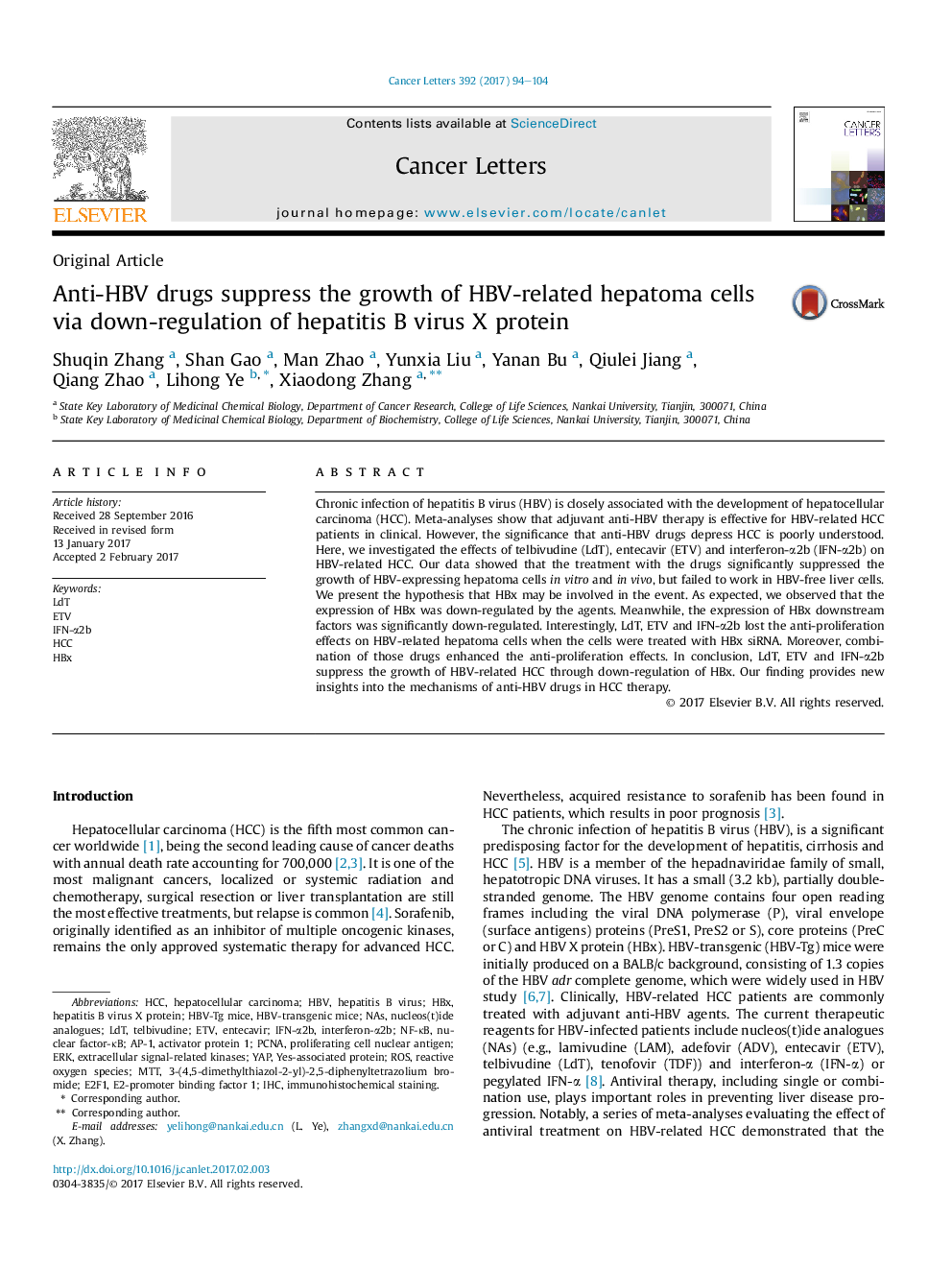| Article ID | Journal | Published Year | Pages | File Type |
|---|---|---|---|---|
| 5525372 | Cancer Letters | 2017 | 11 Pages |
â¢Anti-HBV drugs (LdT, ETV and IFN-α2b) are able to suppress the growth of HBV-expressing hepatoma cells in vitro and in vivo.â¢LdT, ETV and IFN-α2b can inhibit the proliferation of HBV-related hepatoma cells through inhibiting HBV production.â¢HBx contributes to the inhibition of proliferation of HBV-related hepatoma cells mediated by LdT, ETV and IFN-α2b.â¢Combination application of anti-HBV drugs is better than single use in anti-proliferation of HBV-related hepatoma cells.
Chronic infection of hepatitis B virus (HBV) is closely associated with the development of hepatocellular carcinoma (HCC). Meta-analyses show that adjuvant anti-HBV therapy is effective for HBV-related HCC patients in clinical. However, the significance that anti-HBV drugs depress HCC is poorly understood. Here, we investigated the effects of telbivudine (LdT), entecavir (ETV) and interferon-α2b (IFN-α2b) on HBV-related HCC. Our data showed that the treatment with the drugs significantly suppressed the growth of HBV-expressing hepatoma cells in vitro and in vivo, but failed to work in HBV-free liver cells. We present the hypothesis that HBx may be involved in the event. As expected, we observed that the expression of HBx was down-regulated by the agents. Meanwhile, the expression of HBx downstream factors was significantly down-regulated. Interestingly, LdT, ETV and IFN-α2b lost the anti-proliferation effects on HBV-related hepatoma cells when the cells were treated with HBx siRNA. Moreover, combination of those drugs enhanced the anti-proliferation effects. In conclusion, LdT, ETV and IFN-α2b suppress the growth of HBV-related HCC through down-regulation of HBx. Our finding provides new insights into the mechanisms of anti-HBV drugs in HCC therapy.
